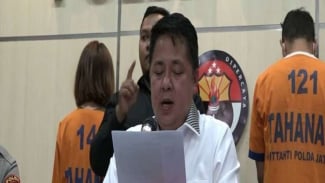Someone Can Die from a Broken Heart, Here's the Explanation
- Pixabay
Jakarta – There's a phenomenon known as "broken heart syndrome" or stress-induced cardiomyopathy, where emotional distress can lead to severe heart muscle weakness. This condition can mimic a heart attack and, in some cases, be fatal.
Broken heart may have significant and serious medical consequences. The physical impact of sadness or loss can even be fatal, emphasizing the importance of immediate medical attention.
Yes, technically you can die from a broken heart. Heart disease is the leading cause of death worldwide, accounting for one in every five deaths.
While factors like diabetes, diet, high blood pressure, and high cholesterol are risk factors for heart disease, stress (which could include the emotional impact of broken heart) can also play a role.
"Stress can trigger a 'distinctive' heart attack, and people can die as a result," said Dr. Harmony Reynolds, director of the Sarah Ross Soter Women's Cardiovascular Research Center at NYU Langone.
Ilustrasi patah hati.
- Dok. Istimewa
A common example of "dying from a broken heart" is someone passing away shortly after losing a partner.
"Some of it is due to heart disease or heart attacks, and I think we don't fully understand why that can happen," Reynolds emphasized.
"It's just one of the many pieces of evidence that stress is a trigger for cardiovascular disease,"
Suffering from a broken heart is a real and dangerous condition faced by many people worldwide. This syndrome is called Takotsubo Syndrome, also known as broken heart syndrome.
What is broken heart syndrome?
Takotsubo Syndrome is a temporary heart condition often caused by stress on the mind or body, such as when facing the loss of a loved one due to death.
It accounts for about 1% of all acute coronary syndromes and is often indistinguishable from a heart attack.
The sudden weakening of the heart muscle is likely due to an imbalanced autonomic nervous system, Reynolds said.
The causes might be physical or emotional stress, but she observes around a third of cases with unidentified stress triggers.
However, the symptoms of Takotsubo Syndrome don't necessarily occur immediately.
"As I often see in my clinical practice, it doesn't happen right away; it can occur days or weeks later," Reynolds stated.
"One phenomenon of stress is we ruminate over it, and sometimes those thoughts aren't even conscious."
It's sometimes triggered by "happy stress," positive life events like celebrations, especially emotional speeches or the birth of a grandchild, Reynolds remarked.



























